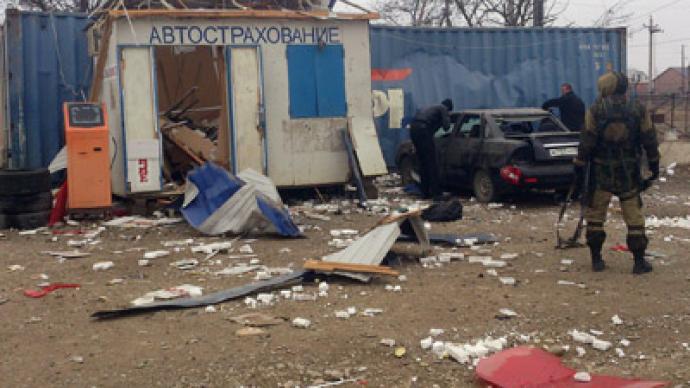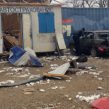
No Letup in Insurgent Violence in Dagestan
Publication: Eurasia Daily Monitor Volume: 10 Issue: 38
By:

On February 14, Russian Deputy General Prosecutor Ivan Sydoruk publicly admitted that Dagestan ranked first in the Russian Federation in terms of the number of crimes committed. That same day, Dagestan’s acting president, Ramazan Abdulatipov, presided over a Dagestani government meeting on the issues of extremism and terrorism (https://lenta.ru/news/2013/02/14/leader/). Albeit with a lag of four years, the Russian authorities eventually recognized that Dagestan is the center of rebel activities in the North Caucasus. According to Dagestan’s acting president, there are several reasons for this, including government corruption and a widely armed population. For the first time, Ramazan Abdulatipov called rebels actions a “war against Russia.”
This belated “discovery” is unlikely to alter the strategy and the tactics of the regional and federal authorities in relation to the armed resistance of the militants. It will take Moscow several years to realize what the real situation is in Dagestan and start changing its approach to the region. However, the impending 2014 Olympics in Sochi require the Russian government to take credible steps that would make it possible to speak about some level of control of the situation in this part of the North Caucasus. President Vladimir Putin’s removal of an ethnic Dagestani, Akhmed Bilalov, from the position of the head of the North Caucasus Resorts Company has raised skepticism among Russian experts about the future of this project. They agree on the crucial point: the main condition for developing tourism in the North Caucasus—personal safety—is absent (www.kavkaz-uzel.ru/articles/219410/).
Another problem in Dagestan is the issue of land ownership, which is highly contentious in the republic. Following a rally in the city of Pyatigorsk on February 10 by ethnic Kumyks demanding a say in the issues of land redistribution in the republic (https://nazaccent.ru/content/6887-hloponin-chrezvychajnyj-sezd-kumykov-eto.html), ethnic Chechen residents of Dagestan took to the streets on February 23. The Dagestani Chechens blocked the highway connecting the two important district administrative centers of Novolakskoe and Khasavyurt and demanded the return of land taken from the Chechens when they were deported en masse in 1944 (www.ekhokavkaza.com/archive/news/20130223/3235/2759.html?id=24910784). This illustrates once again how many problems have accumulated in Dagestan and how hard it is to decide even where to start trying to resolve them.
In contrast to the opinion of Federal Security Service (FSB) Director Alexander Bortnikov, who expressed a high appreciation for the activities of the commission for adapting rebels to civilian life (www.kavkaz-uzel.ru/articles/209510/), the new head of Dagestan expressed unhappiness with its effectiveness and decided to abolish it altogether and create another structure in its place (www.chernovik.net/content/lenta-novostey/abdulatipov-schitaet-chto-komissiya-po-adaptacii-v-dagestane-sygrala). Abdulatipov stated that the new republican peace commission should take care not only of adapting rebels to civilian life, but also manage preventive mechanisms. He further suggested that branches of the commission be created across Dagestan on the district and city level. Previously, a member of the commission for adapting rebels to civilian life, Abbas Kebedov—a well-known politician among the republic’s Salafis—stated that no rebel ever actually surrendered to the commission (https://dagestan.kavkaz-uzel.ru/articles/197442/).
Given the activities of the militants in Makhachkala and in Dagestan as a whole, the scope of problems that the new president faces is very substantial. He will have to deal with the insurgency against the backdrop of a confrontation between two powerful Dagestani clans that could destabilize the republic further. The richest Dagestanis—the Ziyadin brothers and Magomed Magomadov, on one side, and Suleiman Kerimov on the other—are said to be at loggerheads (https://ndelo.ru/politika/730-o-pervyh-shagah-ramazana-abdulatipova.html). While the two clans settle scores, there has been no letup in insurgent attacks. On February 14, a suicide bomber blew up a car loaded with 50 kilograms of TNT near a police checkpoint in Khasavyurt (www.chernovik.net/content/politika/na-frontovom-polozhenii). Three police officers from Volgograd region stationed in Dagestan were killed in the attack immediately and six others were seriously injured. Two of the wounded later died, bringing the total number of police officers killed in the attack to five (www.kavkaz-uzel.ru/articles/220113/).
That same day, government forces spotted a group of rebels in the vicinity of where the terrorist attack took place and killed six (www.kavkaz-uzel.ru/articles/220135/). The initial accusation against the slain rebels was that they had organized the attack on the Khasavyurt checkpoint. However, the series of government successes that later unfolded suggested the authorities were simply fortunate in locating some militants who may have had nothing to do with the suicide attack. On February 16, the police killed a man who fired at them when the officers tried to check his documents. The attacker was later identified as the emir of the northern sector of Dagestan—34-year-old Daniyal Zargalov of the village of Bammayurt in Khasavyurt district. The slain rebel leader, also known as Emir Seifullah, was considered one of the most respected leaders of the Dagestani jamaat’s armed resistance (https://www.kavkaz-uzel.ru/articles/220254/).
Just a day later, on February 17, three more militants were killed, two of whom were identified as Emir Seifullah’s accomplices—25-year-old Kalimulla Sapigullaev of the village of Novosasitli in Khasavyurt district, and 29-year-old Ruslan Tembiev of the village of Leninaul in Kazbekovsky district. Tembiev reportedly was a disciple (a.k.a. naib) of Khalid, the Emir of Khasavyurt. Rebel sources acknowledged these losses (https://kavkazcenter.com/russ/content/2013/02/18/96289.shtml). Police sources in Dagestan insisted that the slain leaders of the northern sector of Dagestan’s insurgency were behind the suicide bombing at the police checkpoint in Khasavyurt on February 14 (www.riadagestan.ru/news/2013/2/17/151146/).
Thus, events just within a two-to-three day period show why Dagestan has been deemed the most dangerous region in Russia. With rumors swirling about possible amalgamations of the regions within the Northern Caucasus Federal District, every republican leader will try to prove to Moscow his right to exist as an independent politician who is able to improve the situation in his region. From now until this summer, when the question about whether to allow republican heads to be directly elected will be decided, the republican leaders are likely to scramble to prove their usefulness, while unending special operations against the militants grind on.




